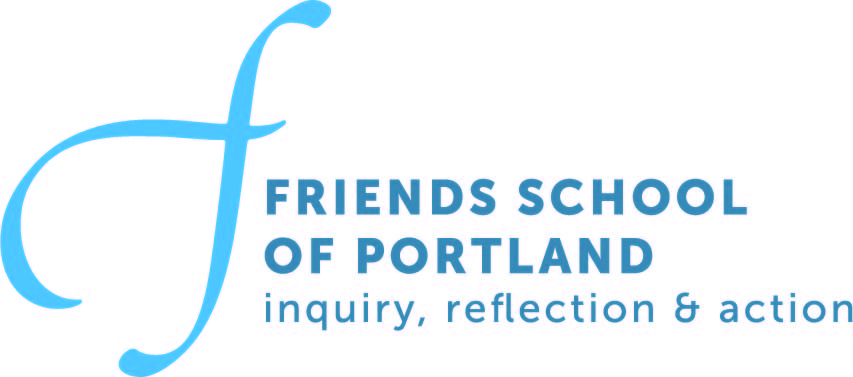What is identity?
“Education (as contrasted with training) comes from community and creates community. When a meeting [for learning] breaks, the community goes out to embrace people and events in new and more powerful ways. When the community meets again, they bring all of that back with them, to hold in the light.”
– Parker Palmer, Meeting for Learning: Education in a Quaker Context
At Friends School of Portland, teachers use essential questions (one might think of them as the education version of a query) to invite reflection, help students build connections across disciplines, encourage inquiry, and shape the work of the year together. This year, the seventh and eighth graders are exploring the question, “What is identity?”. In addition to voicing a critical developmental question for early adolescents the world over, this question will shape FSP seventh and eighth-grade students’ curriculum this year.
During advisory time, students have been exploring their own identities and the ways in which identity shapes them, their views, and their communities. This is both academic work and social-emotional work. When we make space for children to explore and share their identities with one another, we build classroom communities that welcome each student fully into the community. This work is necessary for supporting all children to be able to take the risks they need to learn and grow, and it’s equally necessary to our work toward equity more generally.
Pictured above: Students are creating artistic representations of their identities– thinking about how to represent aspects of their identities that are visible or invisible, central or peripheral. A gallery walk was open to students and families to view.
In the seventh and eighth-grade classes, this work will not only lay the groundwork for a strong and inclusive classroom community, but it will also prepare seventh and eighth-grade students to examine their essential question through various academic inquiries this year as they engage with and build new understanding of communities beyond the classroom walls. At the end of last month, representatives from Toward Right Relationship with Native Peoples led FSP seventh and eighth-grade students in a workshop about Native sovereignty. Students are just beginning a science unit working with the University of Maine project Ash Protection Collaboration Across Wabanakik, through which students will learn about citizen science, ecology, conservation, and Wabanaki identity and sovereignty. In humanities, students will engage with colonialism and its connections with identity and to current world events. Ultimately, through this work, we hope to create a space for students to understand and engage more deeply with themselves, their communities, and their world, to (in Parker Palmer's words) “embrace people and events in new and more powerful ways,” and to “bring all of that back with them, to hold in the light.”
Pictured above: Seventh and eighth-grade students learning about colonialism, imperialism, and the “scramble for Africa”



